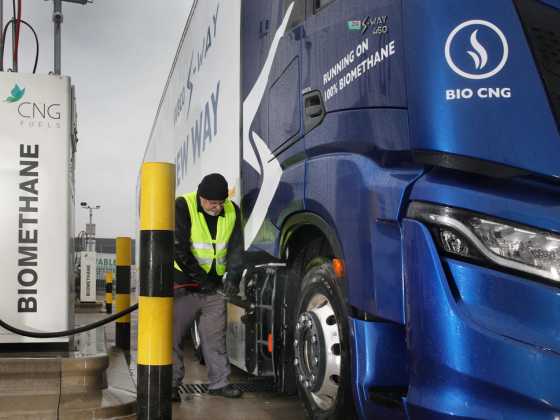Get Budgeting
How will the changes unveiled in the 2013 Budget affect your fleet?
 The Chancellor of the Exchequer delivered his Budget to Parliament on 20 March 2013, which included significant changes to BIK rates for low emission vehicles.So what does this mean for your fleet?
The Chancellor of the Exchequer delivered his Budget to Parliament on 20 March 2013, which included significant changes to BIK rates for low emission vehicles.So what does this mean for your fleet?
BIK rates for green vehicles
The Budget included changes to Benefit in Kind (BIK) rates which will impact plug-in and other low emission vehicles. Two new tax bands have been created: 0-50 g/km CO2 and 51-75 g/km. The appropriate percentages for these bands remain at 0 per cent until
31 March 2015. After that date, the rates for 0-50g/km vehicles are
5 per cent in 2015-16 and 7 per cent in 2016‑17. For 51-75g/km vehicles the rates are 9 per cent and 11 per cent respectively.
Prior to this announcement, BIK rates for plug-in vehicles would have leaped to 13 per cent in 2015 and risen again a year later. Compared to the previously stated rates, this will reduce employer National Insurance contributions and employee company car tax payments.
ACFO’s Julie Jenner believes that while concession is welcome news, it is not enough to drive up the uptake of electric and ultra-low emission vehicles: “Corporate demand for electric company cars remains extremely low except in some niche operations. We believe that despite the Chancellor’s tax concession that will not change unless there are significant improvements in vehicle range and the price of electric cars significantly reduces.”
But Transport Minister Norman Baker believes this will add to the existing incentives for green vehicles to make them more appealing: “The measures the Chancellor has announced could save ultra‑low emission motorists thousands in tax compared to driving an equivalent petrol vehicle.
“Coupled with exceptionally low running costs and the other support that we are already providing, this helps to make these vehicles an attractive alternative to their conventional counterparts.”
The BVRLA commented: “This decision to rethink the benefit-in-kind thresholds on low-emission company cars will ensure they remain an attractive proposition for company car drivers. The market for plug-in vehicles is growing but confidence in this new technology, particularly the costs involved, remains fragile. This move will reassure thousands of potential drivers.”
Fuel Duty
The fuel duty increase planned for 1 September 2013 has been cancelled. It means that fuel duty will have been frozen for nearly three and half years, the longest duty freeze for over 20 years, according to the government.
Edmund King, AA president, said: “A September fuel duty hike would have been the last straw likely to break UK drivers’ budgets and would have led to a summer of discontent. The freeze is a pragmatic move and will bring some relief at the pumps.”
ACFO’s Julie Jenner said: “The move does not stop forecourt prices from rising in the future at the whim of suppliers.
“What the Chancellor really needed to do to give business and consumers a real boost was to cut fuel duty, not simply cancel a planned future tax increase.”
Writing Down Allowance
The first year allowance of 100 per cent has been extended for an additional three years to 31 March 2018, although from April 2015 the threshold of 95g/km will reduce to 75g/km.
As previously announced, there are changes to the first year Writing Down Allowance thresholds for outright purchased vehicles, as well as changes to the Lease Rental Restriction threshold which is reduced from 160g/km to 130g/km.
From April, the government wants to remove the ability to claim 100 per cent first year capital allowances on low emission leased cars, while retaining it for direct purchasers.
The reason, the government sites, is to stop companies leasing UK vehicles into other countries using the allowances.
The BVRLA commented: “Thousands of businesses, particularly SMEs, rely on leasing to acquire their cars because they can’t raise the finance elsewhere. This decision to remove 100 per cent First-Year Allowances won’t stop them leasing, but it will result in them choosing cheaper cars with higher CO2 emissions. In effect, the government is hindering the momentum towards greener motoring. We think overall car emissions in the UK could rise as a result over the next year.”
Further Announcements
In 2015-16 the duty differential between the main rate of fuel duty and the rate for compressed natural gas will be maintained, and the duty differential for liquefied petroleum gas will be reduced by the equivalent of 1 penny per litre.
Fuel Benefit Charge rises to £21,100 for cars and £564 for vans for 2013-14 and will increase by RPI in April 2014 for cars and vans, based on September 2013 RPI.
The van benefit charge will remain at £3,000 for 2013-14, and will then increase by RPI (as above) from 2014. VED for HGVs has been frozen for 2013-14.
Further information
The full 2013 Budget can be found at www.hm-treasury.gov.uk






